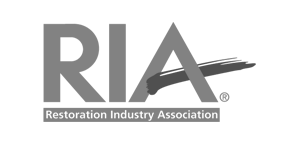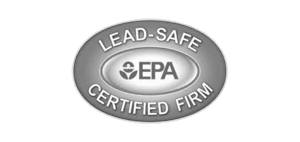After a house fire, it’s easy to make mistakes that could harm you or slow down your recovery. Knowing what not to do is as crucial as knowing what to do. Common errors include going back into a dangerous home or trying to clean up on your own. These actions can lead to serious problems.
Learning about fire damage precautions can help you respond better in the aftermath. It’s important to understand these steps to keep yourself safe.
Key Takeaways
- Do not re-enter the property until cleared by fire services.
- Avoid using water-damaged electrical appliances.
- Refrain from consuming food exposed to smoke or fire.
- Do not start cleanup efforts without professional guidance to avoid health risks.
- Engage with professional restoration companies before discarding damaged goods.
- Wait for written authorization from your insurance company before beginning repairs.
- Keep utility services active unless instructed otherwise.
Immediate Actions to Avoid After a Fire
After a house fire, some actions can make things worse. It’s key to follow immediate post-fire precautions to stay safe. Here are some actions to avoid:
- Do not enter the home until declared safe by authorities: Unstable structures and live electrical lines are dangers. Always wait for clearance from firefighters or emergency personnel before going back inside.
- Avoid turning on utilities: Don’t turn on gas, water, or electricity yourself. Only professionals should restore these to avoid hazards. For example, calling NW Natural Gas at (503) 226-4211 can ensure safe gas and appliance relighting after a fire disaster.
- Do not attempt to clean smoke and soot by yourself: Cleaning smoke and soot needs special agents and techniques. Professional contractors who specialize in fire, smoke, and water restoration should handle this. They will protect your health.
Handling Insurance and Documentation
After a house fire, it’s important to act quickly to handle insurance and documents. Start by calling your insurance company to file a claim. Also, get a fire report from local authorities to prove the incident to your insurer.
It’s key to document all damage well. Take photos and videos of the damaged areas and belongings. This evidence helps your insurance claim and ensures the adjuster gets it right. In 2021, over 353,500 homes in the US were damaged by fires, causing $8,855,900,000 in damage.
To avoid more damage, take steps like boarding up the house and turning off water. Keep receipts for repairs and any extra living costs. This includes staying in hotels or with family while your home is fixed.
- Contact your insurer immediately to file a claim.
- Obtain a fire report from local authorities.
- Document all damages with photographs and videos.
- Keep receipts for all repairs and additional living expenses.
- Secure the property to prevent further damage.
Be careful of fake restoration services trying to take advantage of you. Stick to professionals your insurer recommends such as Disaster Recovery Specialists. Experts like public adjusters, engineers, and contractors can help a lot in the recovery process.
Some areas have insurance plans for events like wildfires. Public adjusters can help get you a fair settlement. They are crucial in finding and fixing hidden damages that are hard to see.
What Not to Do After a House Fire?
After a house fire, it’s important to avoid certain actions. These actions can make recovery harder and risk your safety. Here are some key mistakes to avoid:
- DIY Restoration Techniques: Don’t try to fix things yourself. Without the right skills, DIY efforts can cause more harm. They might also not meet safety standards, which can hurt your insurance claims.
- Unauthorized Repairs: Don’t start fixing things without your insurer’s okay. Unauthorized repairs can mess up your insurance claim. Always talk to professionals and follow what your insurer says.
- Discarding Without Documentation: Don’t throw away fire-affected items without proof. These items are important for your insurance claim. Take photos and make a detailed list to support your claim.
- Returning Prematurely: Don’t go back to your house before it’s safe. Going back too soon can be dangerous. You might face unstable structures, toxic gases, and other hazards.
- Using Electrical Appliances: Don’t use electrical items until a pro checks them. Fire damage can make electrical systems unsafe. This can lead to shock or even another fire.
- Improper Water Usage: Be careful with water after a fire, especially if it might be dirty. Don’t use it for dishes, teeth brushing, or cooking until it’s tested. This is to avoid health risks.
- Ignoring Well Water Issues: If you use well water, get it tested first. Talk to a licensed well contractor before using it. This is to avoid health problems.
- Consulting Experts: Get advice from experts before getting rid of fire-affected items. Wait for a pro to remove smoke before washing things. Also, ask experts before turning on water and gas.
In summary, knowing these fire damage precautions helps you recover better. Following these steps and safety measures can prevent more harm.
Conclusion
Recovering from a house fire is tough and needs careful planning and safety steps. Over 350,000 American families face house fires yearly. It’s key to know what not to do first and to manage the fire aftermath well.
Don’t enter unsafe buildings and document everything right away. Also, understand your insurance well. Every step is important for disaster recovery services.
Getting the right professional help is crucial for big fire damage. Structural engineers and restoration companies are highly recommended. Fire residue and water damage from fighting fires are big health risks.
Fire can also affect your mental health and lead to mold issues. So, getting help from mental health experts and mold specialists is vital.
While some items like jewelry might survive, safety and health come first. The first 24 to 48 hours are critical for preventing water damage and mold. Working with restoration experts can make rebuilding safer and more effective.
These steps help homeowners deal with the fire’s aftermath. They lead to a safer and more effective recovery.













